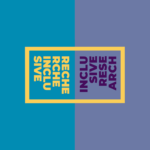“The metrics for measuring innovation are quite exclusive, it is not inclusive. It is racialized for the most part and therefore it does not really capture the stuff that goes on in marginal spaces.”
Chidi Oguamanam, Full Professor, Common Law Section, Faculty of Law
The Open African Innovation Research Partnership (Open AIR) has transformed our understanding of Africa’s role in the global knowledge economy, promoting inclusion through African technology hubs, empowering women, youth and members of marginalized communities to drive inclusive innovation in Africa, and building understanding and respect for Indigenous data sovereignty and knowledge governance systems. Founded in 2006, the partnership is led by Professor Jeremy de Beer and Professor Chidi Oguamanam, who bring an unwavering commitment to creating a world where the benefits of knowledge and innovation are distributed more equitably and inclusively.
This video features a roundtable discussion from the second day of the 4th Autumn School on the Methodology of Research in Law, in which Professors de Beer and Oguamanam are joined by Open AIR’s Regional Manager and Research Associate, Victoria Schorr, to discuss how the partnership approaches research training in its efforts to decolonize how we see innovation. Open AIR boasts a substantial training and mentorship program through which scholars from Africa and Canada collaborate on Open AIR projects, author and co-author publications in both English and French, and are supported in convening their own events. The panelists discuss their distinctive approach of mutual respect and reciprocity, which is elaborated upon by an impromptu contribution from Esther Ekong, a current PhD candidate at the Faculty of Law, and the lead of Open AIR’s New and Emerging Researchers Group, a self-governing but closely-guided community of emerging scholars.
The panelists explain the nuances of navigating the cross-cultural nature of the partnership, emphasizing its commitment to bridging across global divides to learn from Africa rather than teach to Africa. This commitment to reciprocal collaboration is allowing Open AIR to create new models to better measure and value diverse modes of innovation.

